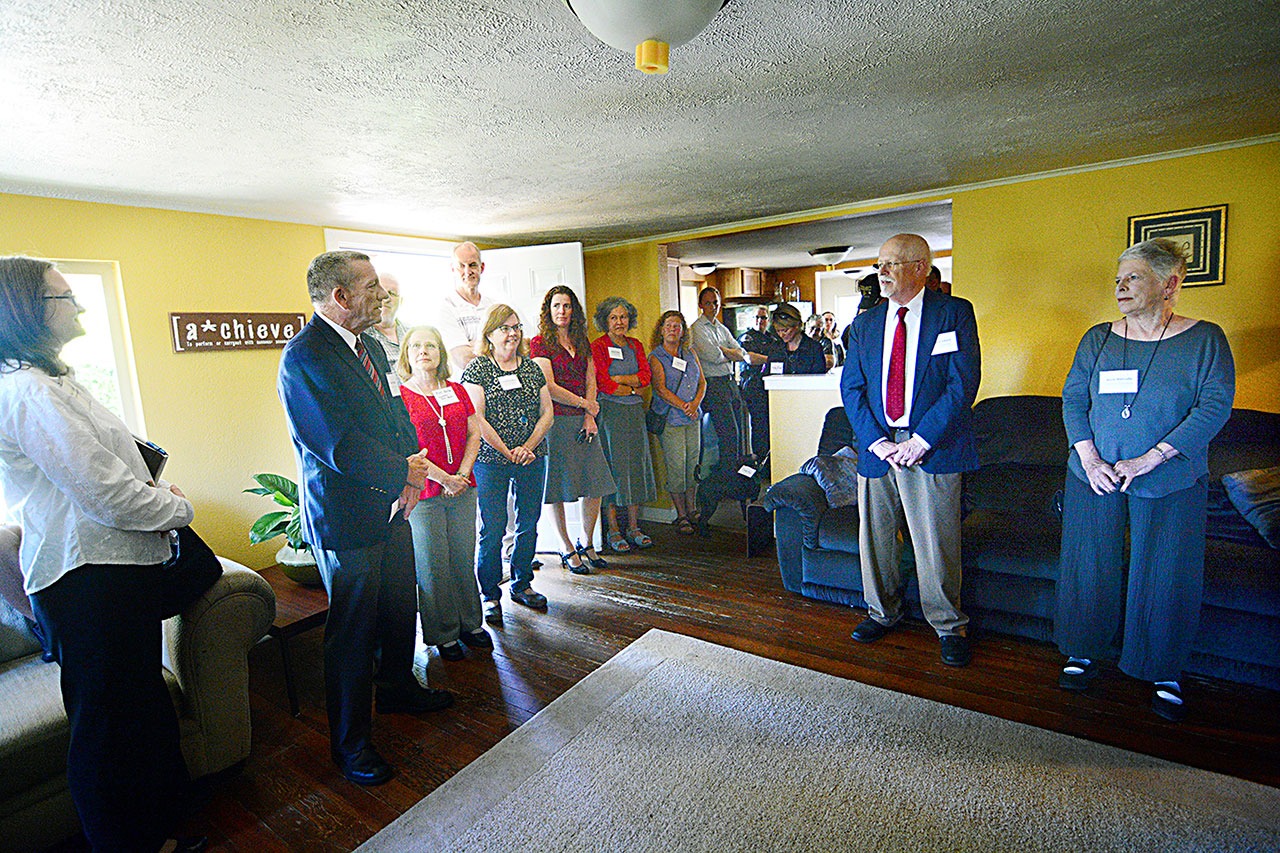PORT TOWNSEND — Jefferson County has a unique solution available for many of the county’s youth caught in the juvenile justice system.
Proctor House is unlike any other program in Washington state and was the only of its kind in the country when it opened in 1996, said Barbara Carr, Jefferson County juvenile services director.
The name of the house comes from the definition of a proctor, someone who monitors students, she said.
Officials from throughout the county toured the house earlier this month to get a closer look at the program.
At the facility, up to six juveniles at a time who have offended can still attend school, after-school programs and maintain their jobs while they serve time in detention, Carr said.
Up to 45 percent of the county’s juvenile detention bed-time is spent at the Proctor House, she said.
“For many of the kids that come here, their worlds are more stressful, more unpredictable and more overwhelming,” Carr said.
“Often a short stay here at the Proctor House serves as an opportunity to turn down the noise in their life.”
Juveniles without violent or sex offenses can be eligible for the program, she said.
If Juvenile Services personnel feel a minor who has broken the law is fit for the program, a judge is asked to authorize a less restrictive alternative to secure detention, Carr said.
The program is for youth who are at risk of moving farther into the juvenile judicial system who don’t necessarily need to be detained in a secure facility, she said.
Juvenile Services doesn’t track recidivism at the Proctor House, she said; success with a youth can be attributed to any one of the numerous services provided at the house.
The average length of stay at the Proctor House is less than 10 days, though some do stay for a month or more, Carr said.
Because of Jefferson County’s low population, the county isn’t required to have its own secure juvenile detention facility. Instead, the county contracts with Kitsap County.
The secure facility is often used when juveniles need a few days to “stabilize, to allow for emotion regulation, to allow drugs to leave their system, to allow anger to abate,” Carr said.
“When a youth is in detention an hour away, the disconnect from family is obvious and difficult,” she said.
For many of the youth who go to Proctor House, it can become a safe haven.
“The reality of this program is there are times when a kid would rather be here than at home or to be homeless,” she said. “It speaks to the complicated issues youth carry with them.”
The program was born after the previous director and foster parent noticed there were a number of foster children getting involved with the juvenile justice system.
“They were experiencing that kind of shift in their life, then they offend, and that just didn’t feel right,” she said.
The funding source originally used for the program wasn’t comfortable with having foster children and offenders in the same facility, so to save the funding the program was modified.
It now serves only offenders and status offenders who are under the umbrella of juvenile justice, she said.
Now, the program is funded through the county, which budgeted $134,052 for the Proctor House this year.
State Supreme Court Chief Justice Barbara A. Madsen said the program is unlike any she has ever seen.
Madsen and Justice Mary Yu toured the house earlier this month.
“As I was listening, I was thinking about the big push-back in King County against the new juvenile facility,” Madsen said. “This is the perfect antidote to jail.”
Madsen called it the ideal model for dealing with kids who haven’t had the advantage of a safe and predictable environment.
________
Reporter Jesse Major can be reached at 360-385-2335, ext. 5550, or at jmajor@peninsuladailynews.com.

